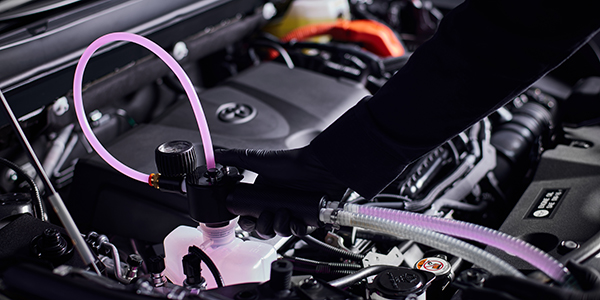How Often Should Coolant Be Exchanged?
July 15, 2022
How often should engine coolant be exchanged? It depends, there are a number of factors that can affect a vehicle’s cooling system.
To begin with, let’s talk about what coolant is. Coolant, also known as antifreeze, is designed to protect your engine from temperature extremes, both hot and cold. Coolant absorbs engine heat then flows through the radiator where most of this heat is dissipated. The cooler fluid flows back through the engine to absorb more heat, and the cycle continues.
The primary ingredients in engine coolants are water and ethylene glycol or propylene glycol—these last two prevent freezing. Other additives extend the life of the coolant far longer than just water and antifreeze. These include anti-foaming agents, corrosion inhibitors, and lubricants.

Coolant and these additives can deteriorate over time and it may still look like it’s in good condition. When coolant degrades, it becomes more acidic over time, loses corrosion resistance and will foam up more easily making it less effective at dissipating heat.
The best way to know how your coolant is holding up, is to have it tested by using a coolant test strip. These strips often measure the freezing point of coolant as well as the pH (or acidic level) of the coolant to determine if it still has anti-corrosive properties or if it has become corrosive and should be exchanged.
A good general rule of thumb that is recommended by BG and manufacturers is to replace your coolant every 30,000 Miles. Extreme conditions, leaks, or blockages in the system could shorten that interval.
Get a BG Cooling System Service today!
